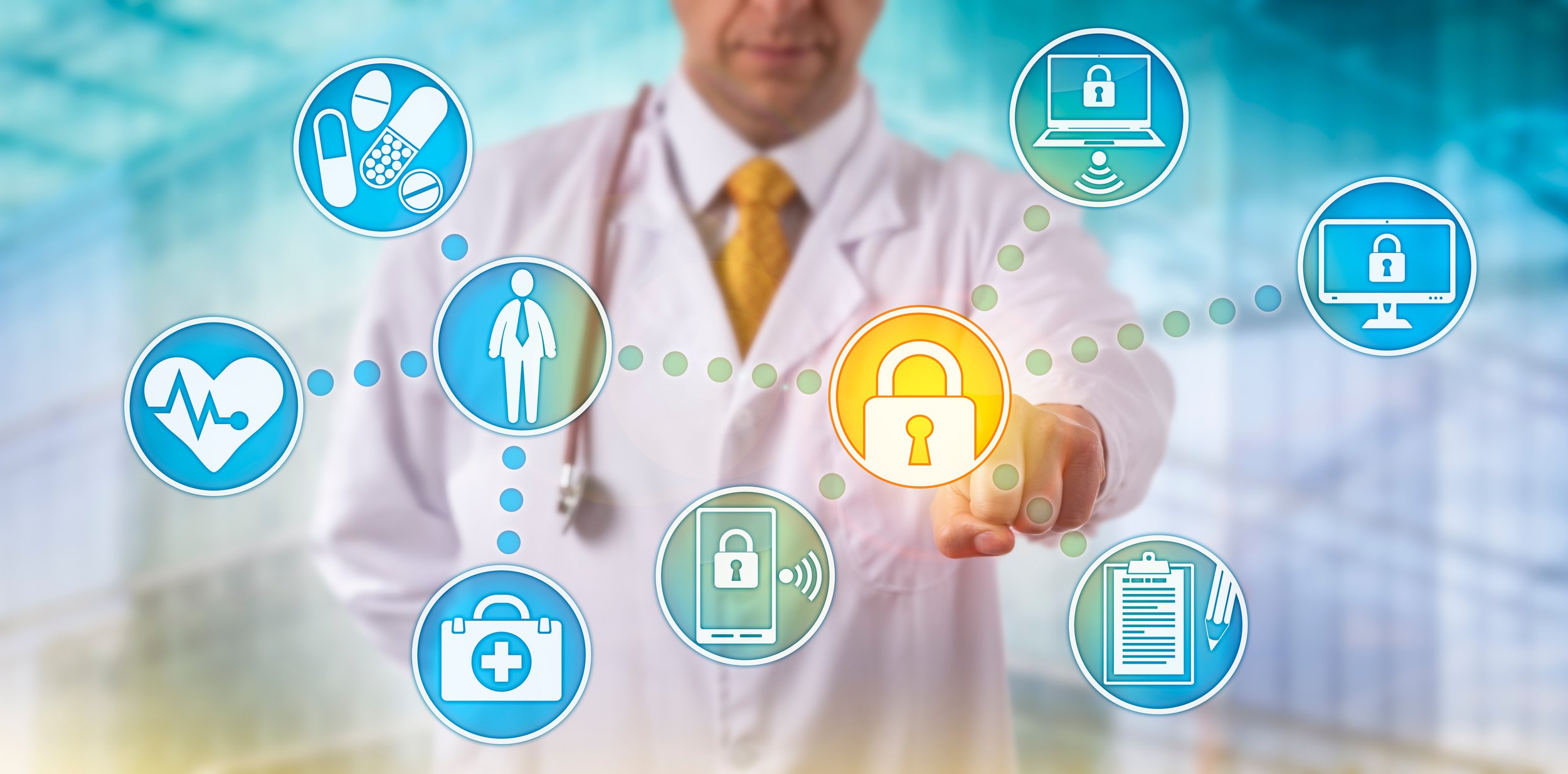The health care industry has become reliant on the digitization of data to maintain and share patient information. In addition to the benefits derived from healthcare technology, the rise of digitization in healthcare has brought an unintended side effect – vulnerability of viruses, malware, and hackers to healthcare data. Thus, it’s crucial to protect patient health records and other data from these threats with cybersecurity monitoring.
Healthcare data has become a growing target for hackers as more of it is generated and made exposed via data sharing and through medical devices that communicate with hospital systems. For that reason, it is critical for all healthcare professionals and administrative staff to understand the importance of cybersecurity.
Cybersecurity threats to healthcare organizations and patient safety are real. Such cyber-attacks expose sensitive patient information and lead to substantial financial costs to regain control of hospital systems and patient data. From small sole practitioners to large hospitals, cyber-attacks on healthcare records and medical devices have infected even the most hardened systems. According to the American Medical Association (AMA), nearly one million new pieces of malware are created each day.
Cybersecurity Tips from AMA
The AMA is spreading awareness of cybersecurity and has developed tips on how physicians can protect their computers and network to keep patients’ health records and other data safe from cyberattacks.
- To protect against malware ensure that your software and server operating systems are regularly patched and updated.
- Create one Wi-Fi network for your practice and another for your patients. For example, practice and practice guest. Make sure to use different passwords for each.
- Create and enforce a workplace policy requiring strong passwords. For example, using at least eight characters with a mixture of letters, numbers, and symbols. Change the password every 90 days at a minimum.
- Encrypt and password-protect mobile devices, including cell phones, tablets, and laptops.
- Make sure to use the most current version of the web browser software (e.g., Internet Explorer and Chrome) and enable automatic updates if possible.
Given the increasingly widespread nature of cyber-attacks, it is imperative that the healthcare industry makes cybersecurity a priority and makes the investments needed to protect its patients. Cybersecurity requires coordination of resources across a number of public and private stakeholders, including hospitals, IT vendors, medical device manufacturers, and governments (state, local, and federal) to mitigate the risks and minimize the impacts of a cyber-attack. The U.S. Department of Health and Human Services (HHS) and the Health Care and Public Health (HPH, Health Sector, Health Care Industry) sector are said to be working together to address these challenges.
Cybersecurity is a Priority for Patient Safety
If physicians are not securing their data with cybersecurity technologies, they risk theft, the loss of private patient information, and loss of access to critical medication lists, diagnoses and lab results. HIPAA compliance is not enough to protect patient records that’s why cybersecurity is crucial. But physicians don’t have to figure out how to protect the records on their own. They can rely on IT and cybersecurity companies for network and system security.
Keykeya Technology offers cybersecurity solutions for HIPAA Compliance. We use state-of-the-art remote access, and system monitoring software to continuously manage our clients’
network to eliminate costly disruptions, data loss, and cyber threats. Our 24/7 Security Operations Center provides threat monitoring and response services and is 100% U.S based. Give us a call (866)-560-9690 so we can get started on protecting your healthcare records with our KeyTech Cybersecurity Services.

